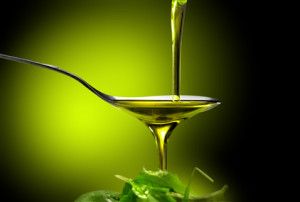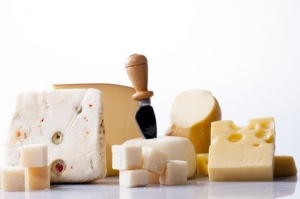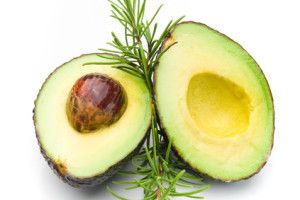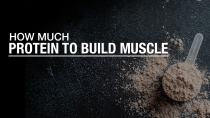
Back in the 80s and 90s, fats got a bad rap when it came to diet and weight loss. They were vilified, stripped from packaged foods and replaced with carbs and sugars to create ‘diet-friendly’ versions. However, this practice actually created more harm than good, causing those looking to lose weight to overindulge on high-carbohydrate empty-calorie foods.
While we know it’s important to avoid trans fats in our diets, there are a few types of healthy fats that we need for good nutrition. Our bodies use fats to transport nutrients from our foods into our cells, protect our organs, and maintain vascular health and brain function. Many important vitamins and minerals like A, D, E and K are fat-soluble meaning that the body can only absorb them with fat. While it’s the veggies in your salad that are full of good nutrients, it’s the olive oil in the dressing that delivers those nutrients into your bloodstream!
Healthy fats have the added benefit of aiding in weight loss. Healthy fats can help us feel full, boost energy, build muscle and improve our metabolism. Dietary fats burn slowly, and provide some of the most stable sources of energy to our bodies. Our body needs three types of macronutrients for energy: carbohydrates, proteins and fat. A gram of fat contains more than twice the energy of a gram of the other two! According to research conducted by Washington University School of Medicine in St. Louis, stored body fat can’t be burned efficiently without dietary fat to help the process. Studies have also shown that dietary fats stimulate muscle growth and can prevent loss of muscle mass due to aging.
So how much fat is the right amount? Most sources suggest that 20 – 30% of your daily calorie intake should come from fats. In choosing fats, opt for healthy monounsaturated fats and polyunsaturated fats. It’s best to limit saturated fats to just once in a while, and avoid trans fats completely. To give you a sense of portions, for a woman following a 1500 – 1800 calorie per day diet, this would be about 40 – 60g of fats.
Let’s have a look at the different types of fat, their effects on health, and where we can expect to find them.
Health and Weight Loss Benefits: Eating monounsaturated fats can help lower your LDL cholesterol and can help you lose weight by controlling hunger and blood sugar levels.
Where to find them: Monounsaturated fats can be found in nuts (including almonds, cashews, pecans and sesame seeds) , avocados, canola oil, sunflower oil, sesame oil and olive oil. Many soy-based foods are also high in monounsaturated fats. If you’re trying to lose weight, be mindful of portions ,since nuts and oils have a high calorie count.
OMEGA-3 POLYUNSATURATED FATS
Health and Weight Loss Benefits: Omega-3 fatty acids are essential for your health. They increase oxygen flow in the body, lower blood pressure and cholesterol, improve heart health and blood glucose levels, decrease inflammation and improve your body’s ability to burn fat.
Where to find them: Omega-3 polyunsaturated fats can be found in fish like tuna, salmon and halibut, as well as grass fed meat and eggs. Two 4-oz servings of salmon per week are enough to get the recommended intake of omega-3 fatty acids. If you’re a vegetarian, you can find Omega-3s in nuts like walnuts, almonds, hazelnuts, pistachios and pecans as well as flaxseed and flaxseed oil. Like monounsaturated fats, Omega-3 polyunsaturated fats are also high in calories it’s important to watch portions.
Health and Weight Loss Benefits: In excess saturated fats can be harmful, but it’s ok to eat them once in a while in moderation. They should make up no more than 7% of your diet. These are higher in calories, and if overeaten, can clog your arteries and increase risk of cardiovascular disease. Eat in moderation.
Where to find them: Sources include fatty meats (like beef, veal, lamb and pork), whole dairy (butter, cream, milk, and cheeses) as well as cocoa butter and coconut. Saturated fats are also found in processed food and junk food, but best to avoid these sources!
TRANS FATS
Health and Weight Loss Benefits: Trans fats are the ones to stay away from. Fried dishes and packaged goods are full of them. Often called partially hydrogenated oils, they are linked to weight gain and heart disease.
Where to find them: Fried and packaged foods.
At Athlean-XX for Women, we’re all about healthy nutrition because it helps us lose weight and have energy for our tough workouts! Our nutrition plan recommends combining proteins, fats and slow-burning carbohydrates at every meal and snack to help keep you feeling full. In fact, the Athlean-XX for Women nutrition plan is anything but a diet – we actually recommend you eat more – 5 – 6 times per day! This type of diet will help turn your metabolism into a fat burning machine – when combined with our killer 30 minute workouts. Yes, with Athlean-XX for Women, eat more, exercise shorter but harder and weigh less! Join us on Team Athlean to start your lifestyle makeover now!
And finally, if you’d like to stay up to date with the AthleanXXforWomen.com blog, then please like us on Facebook, follow us on Twitter and follow us on Pinterest.
P.S. We are a growing community dedicated to and passionate about realistic fitness and nutrition for REAL women. If you enjoyed this post please feel free to share on Facebook, Twitter and Pinterest. It would be incredibly appreciated!






